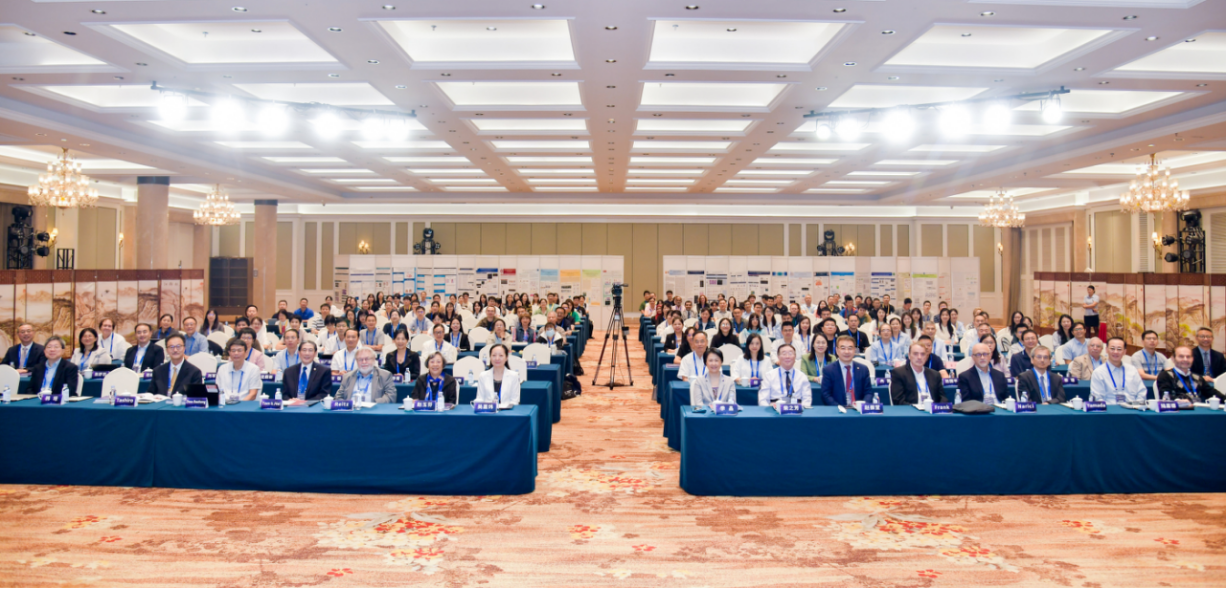
On September 22, the 9th International Symposium on Space Radiation Research and Particle Radiotherapy (ISSPRPT2024) was held in Kunshan. This symposium was hosted by the School of Radiomedicine and Protection, Suzhou Medical College, Soochow University, the State Key Laboratory of Radiation Medicine and Protection, and jointly organized by United Well and other organizations.
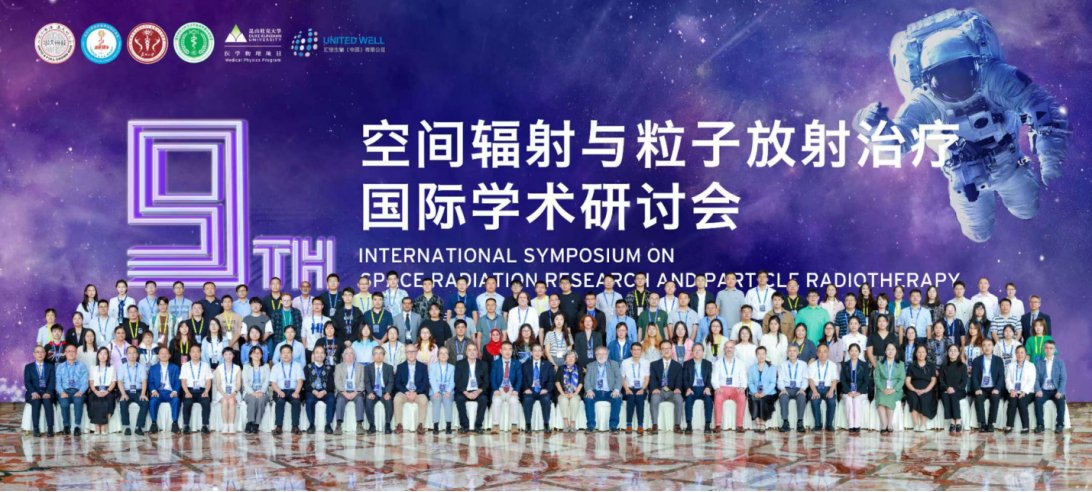
More than 200 experts and scholars in the field of space radiation and particle radiotherapy from the United States, Germany, Japan and other countries participated in the event. Under the scheme of "Particle Radiation and Human Health”, there are nine topics in total, including space life science, particle treatment, FLASH radiotherapy, nuclear medicine and nuclear pharmacy, basic radiation biology, radiation detection technology, accelerator technology and its application, nuclear science and technology industry BBS and radioactive drugs scientific development and clinical transformation, etc.
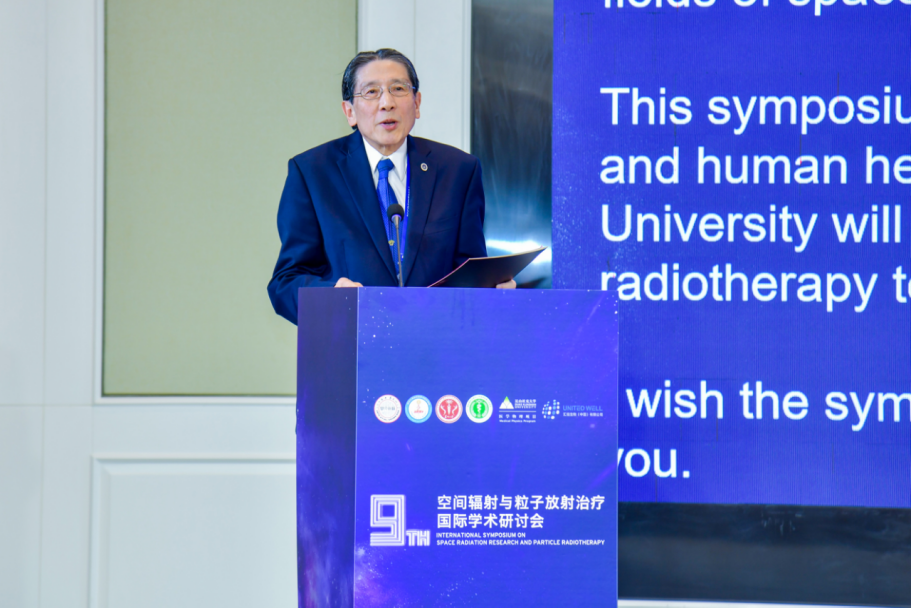
The symposium aims to promote the application and development of the international manned space industry and the field of particle radiotherapy medicine, promote the communication and cooperation of clinical, scientific research and industrial workers, and share the cutting-edge research results in the field of space science and particle radiotherapy.
The opening ceremony of the symposium was hosted by Tom K. Hei, chairman of the ISSPRPT2024, who is also the tenured professor of Columbia University.
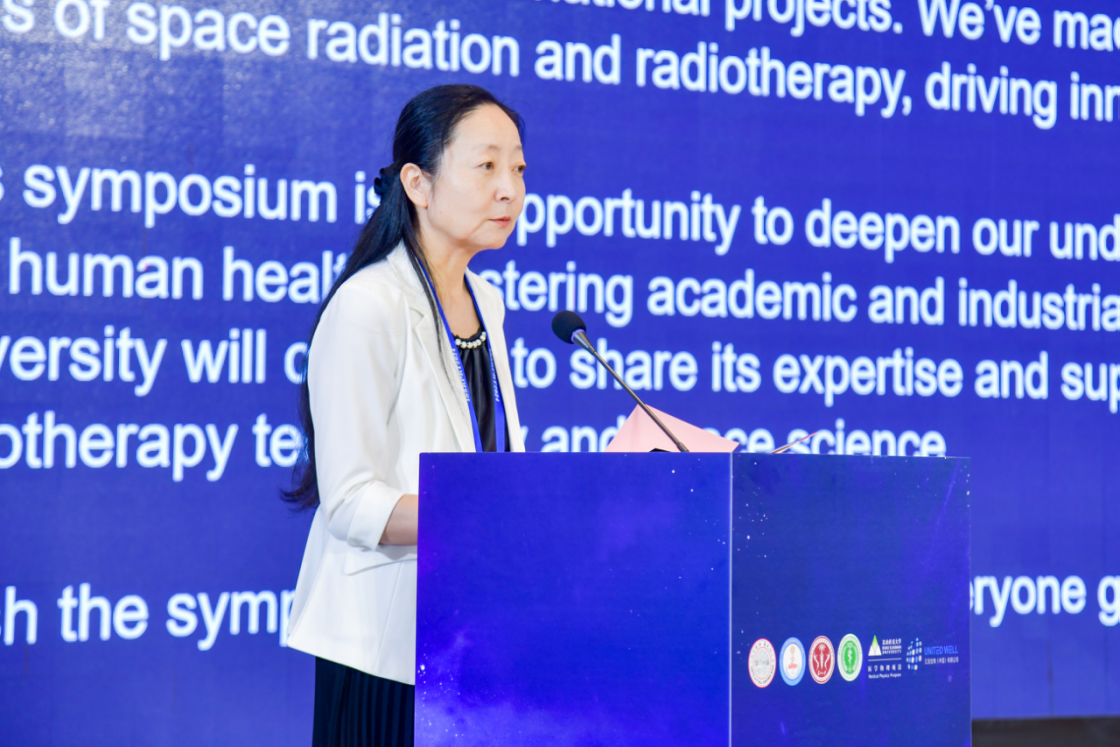
Jing Ji, vice Mayor of Suzhou, Jiawei Wu, vice president of Soochow University, Yufen Zhao, academician of Chinese Academy of Sciences, Dean of Institute of New Drug Technology of Ningbo University, Zhifang Chai, academician of Chinese Academy of Sciences, Dean of School of Radiomedicine and Protection of Soochow University, honorary Director of State Key Laboratory of Radiological Medicine and Protection, attended and delivered a welcome speech.
Jiawei Wu pointed out that Soochow University is a "Project 211" and "Double First-class" university. The School of Radiomedicine and Protection and the State Key Laboratory of Radiological Medicine and Radiation Protection have made significant contributions to the field of space radiation and radiotherapy, and promoted innovation and cooperation. This symposium will deepen the understanding of "Particle Radiation and Human Health" and create opportunities for academic and industrial cooperation. Soochow will continue to share its expertise and support the development of particle radiotherapy technology and space science.
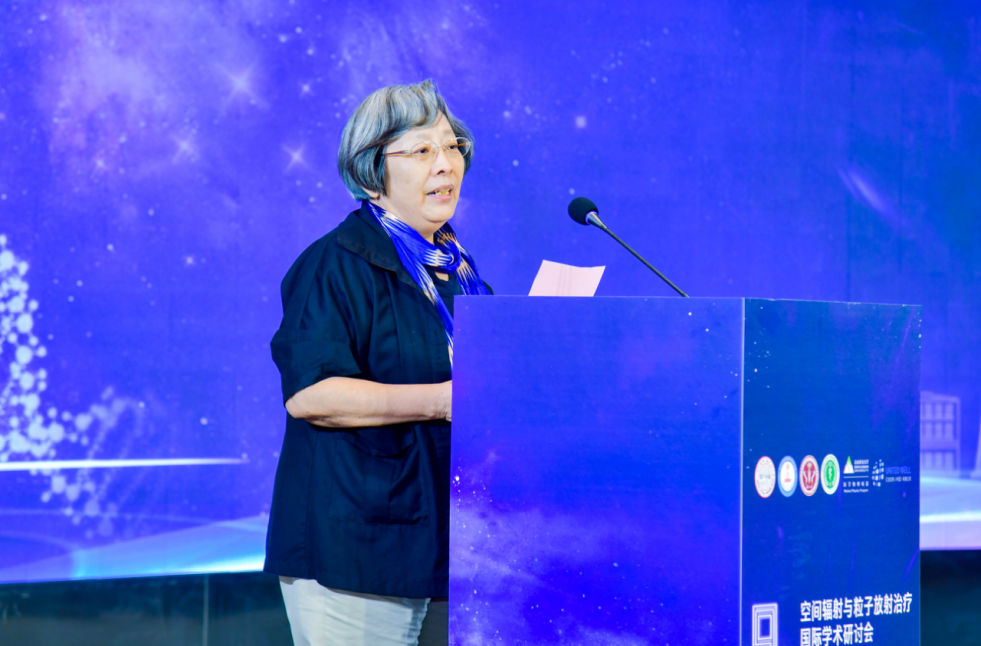
Yufen Zhao said that China has achieved fruitful results in the field of space radiation and particle radiation therapy in recent years. Nuclear radiation research is the technology which benefits generations, and the industry will definitely make great progress, and encourage young people to make efforts for it.
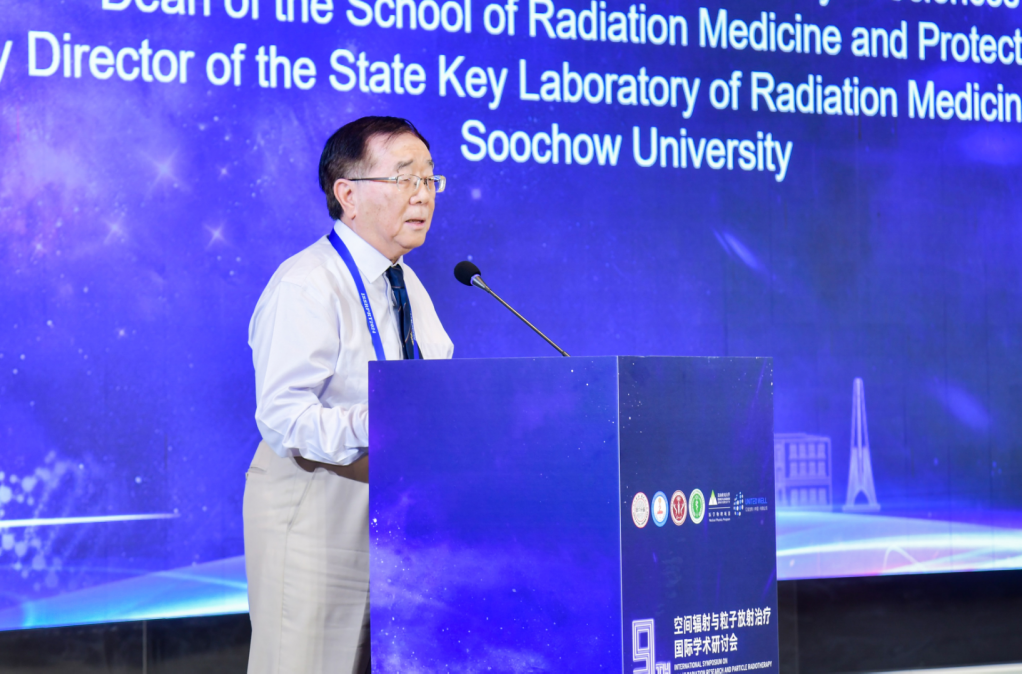
Zhifang Chai congratulated on the successful holding of the symposium, expressed high expectations for the future of the field of nuclear radiation research, and hoped to create a better human living environment through scientific research.
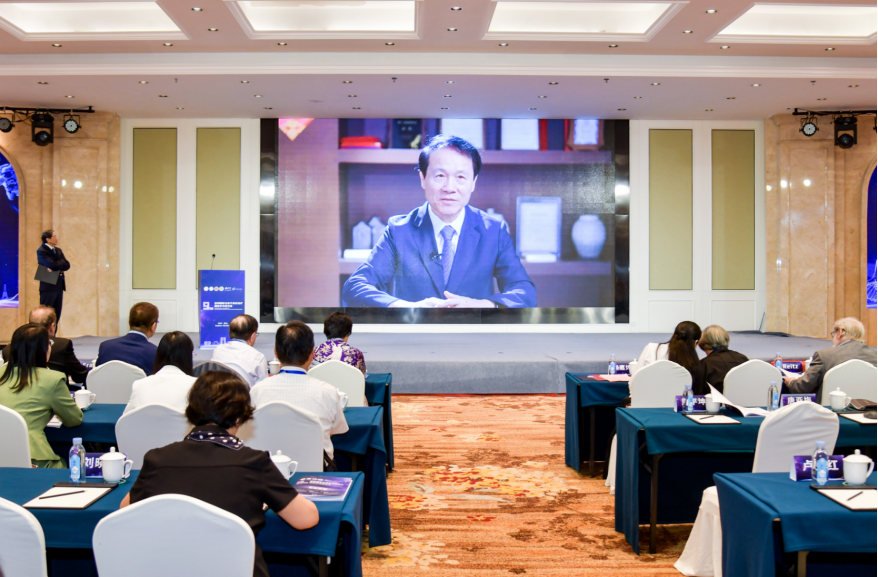
Qimin Zhan delivered a speech to the conference via video. He stressed that the symposium was a meeting of interdisciplinary integration. By exploring the dual impact of radiation, sharing the latest international research findings, innovative solutions and insights to improve the efficacy and safety of radiation therapy, and strategies to assess and mitigate the risk of spatial radiation. This is a great opportunity.
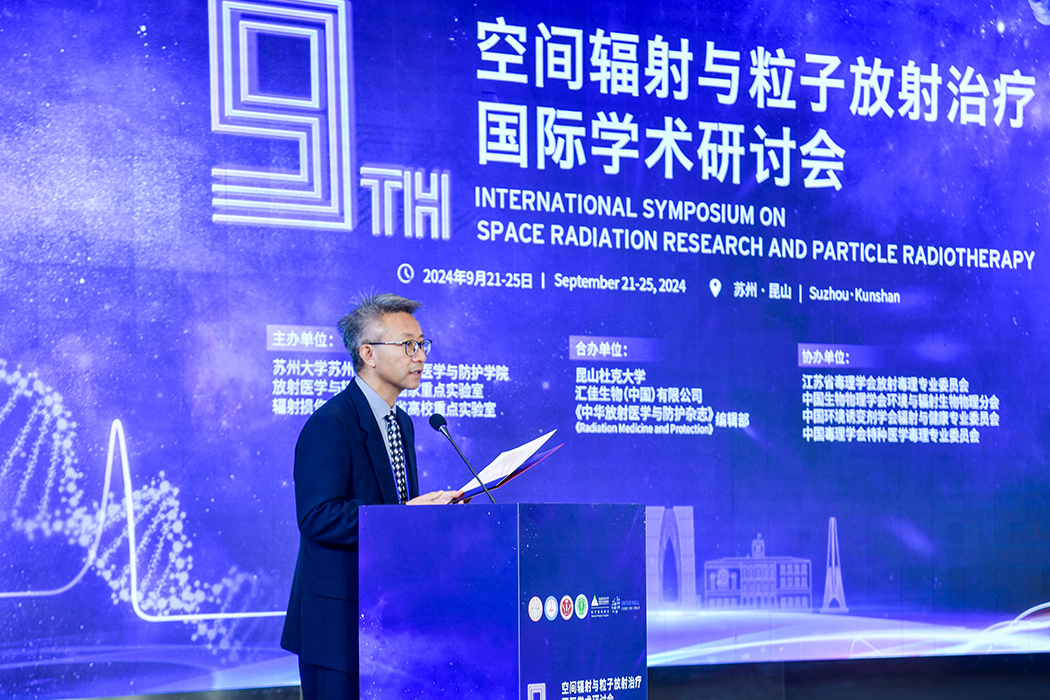
The keynote speech of the symposium was presided over by Guangming Zhou, co-chairman of the ISSPRPT2024, academician of the International Academy of Astronautics and vice president of the School of Radiological Medicine and Protection. Professor Francis Cucinotta, former NASA chief scientist of Radiation Biology and University of Nevada presented the challenges and opportunities in the development of charged particles in space research and clinical medicine.
Professor HirohikoTsujii, former president of Heavy Ion Hospital of Japan National Institute of Radiology Medicine, and Jiade Lu, vice president and director of Cancer Medical Center and Proton Heavy Ion Center, demonstrated the progress of QST heavy ion radiotherapy in Japan and particle radiotherapy for difficult head and cancer cases in China respectively.
During the three-day symposium, top experts and scholars from various countries gathered together to fully communicate in various fields of space radiation and particle therapy, discuss the development direction of radiation safety and health, share the research hotspots and research results in the professional field, and greatly promote the academic and industrial integration.
Haixia Jiang, Vice President of United Well presented that particle radiation is closely related to human health, Radiopharmaceuticals use radiation mechanism to realize visual diagnosis and precise treatment of diseases and are widely used in the diagnosis and treatment of tumor, cardiovascular and neurological diseases. Through the exchange of this symposium, the scientific innovation development direction of radiopharmaceuticals will be discussed from different perspectives.